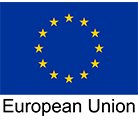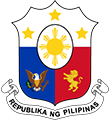BACKGROUND
Support to Bangsamoro Transition (SUBATRA) is a 5-year programme funded by the European Union, and co-financed by the Spanish Agency for International Development Cooperation (AECID), through an Agreement with the Government of the Republic of the Philippines. SUBATRA contributes to a smooth and timely undertaking of the transition through capacity building of the three branches of the Bangsamoro Government (executive, legislative and judicial) and civil society organisations. This will promote an enabling good governance environment and support the efficient implementation of policies set up by the transition plan, with a focus on capacities that are critical for a sound functioning of interim institutions. These include: i) capacity of the BTA’s executive branch superstructure to drive and coordinate key transitional policies; ii) capacity of the Parliament to exercise its law making and oversight functions; iii) capacity of the Justice System to adjudicate litigations and improve access to justice, and iv) capacity of the civil society to contribute to a peaceful transition to the Bangsamoro Autonomous Region in Muslim Mindanao (BARMM).
| Duration | 60 months 01 July 2020 – 25 June 2025 |
| Total Budget | EUR 26M European Union 25M AECID 1M |
| Partner Agencies | Bangsamoro Transition Authority (BTA) Office of the Presidential Adviser on the Peace Process (OPAPP) |
| Executing Agencies | Spanish Agency for International Development Cooperation (AECID) United Nations Office for Project Services (UNOPS) |
| Implementing Entities | Particip – KAS Consortium |
| Project Director | Director General Mohajirin Ali Executive Director, Bangsamoro Planning and Development Authority (BPDA) |
GOVERNANCE STRUCTURE

The Programme Steering Committee (PSC) is responsible for the over-all policy direction of the programme and the approval of the annual work plans. The PSC is jointly chaired by the Chief Minister of the BARMM Government and the Presidential Adviser on Peace, Reconciliation and Unity. A Programme Management Office (PMO) attends to the more detailed realization of programme activities based on strategic policy directions provided by the PSC. The PMO is headed by a Project Director, and its members are composed of representatives of various offices under the BARMM Government.
The PSC, with the European Union participating as member, will approve the inception report and yearly work plans under the programme components; will provide the platform for reporting on progress made; discuss solutions to problems identified in the course of programme implementation; and coordinate with other relevant interventions.
About the European Union

The EU’s support to the Philippines currently focuses on governance, job creation, renewable energy, and assistance to vulnerable populations, specifically in Mindanao which is the poorest region of the Philippines and has been affected by conflicts and population displacement. The EU remains one the biggest foreign development partners in support to Mindanao and the Peace Processes through a comprehensive approach targeting directly the political settlement and medium to long term development of conflict-affected, underdeveloped and disadvantaged areas.
EU development assistance is closely aligned with the Philippine Development Plan and the Six-Point Peace and Development Agenda. The Plan provides a framework that allows the EU to align its development cooperation programmes with Government policies and programmes with clear leadership and ownership on the part of the Philippine authorities.








